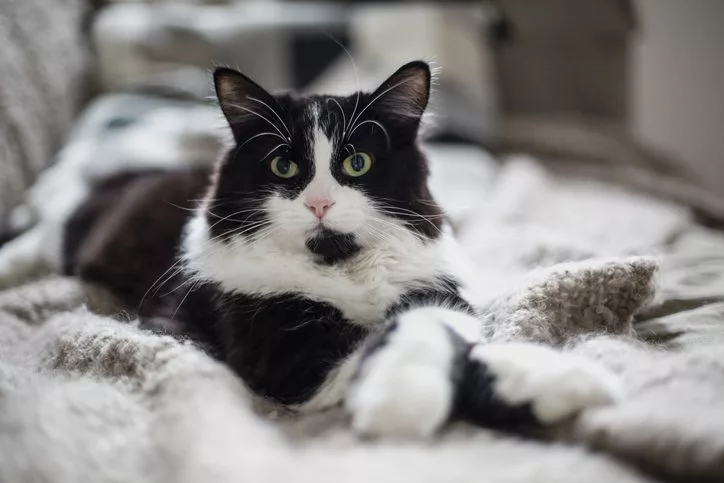What is The Average Lifespan Of A House Cat in Wilton Manors, FL
You may have wondered how long your house cat might live. Because one of the hardest parts of loving a cat is knowing that you will outlive them. Compared to a human’s lifespan, a cat’s life is short. But there are several factors that have to be considered when you are trying to figure out how long your fur baby might be with you. And even with the best information available, it still isn’t a guarantee that they won’t have a longer or shorter lifespan. There are things you can do to keep your cat as healthy as possible to have her with you for as long as possible. It isn’t all up to genetics, and that’s good news. This article will discuss how to help your cat live as long as possible.

Normal Lifespan For A Cat
Cats that live indoors live longer than outdoor felines and have an average lifespan of 10 to 15 years. Many live much longer with some living into their twenties.
Nutrition
Your veterinarian can help you make sure your cat is eating what he needs in the proper quantities. And your cat’s nutritional needs will change throughout the stages of his life. Your cat may at some point even need a prescription diet. Let your veterinarian guide you and your cat will never have deficiencies in her diet.
Health Care
A cat with poor health and little to no health care, no matter how long her breed can live, will have a shortened lifespan. A good veterinarian is your partner in keeping your cat healthy and making sure you have her as long as possible. Your cat needs good dental care as well. A cat with bad teeth will have a difficult time eating and getting proper nutrition.
Indoor vs Outdoor
It’s no secret that cats living outdoors have shorter lifespans. There are too many dangers to allow your cat outside the safety of her home. In addition to physical dangers from traffic, other animals, and people who don’t like cats, there are diseases, parasites, and viruses that your cat can contract. Some diseases are fatal and highly contagious to other cats. While your cat might beg to go outside, it’s a risk to her life each time she leaves the safety of your home.
Purebreds vs Mixed Breed
Mixed breeds have longer lifespans because their genepool is more diverse. This lessens the chances of health issues being passed to kittens. Purebred cats have a limited genepool and because of this, often there will be genetic problems that can be passed down. An example might be vision problems or a tendency to develop a heart condition as the cat ages.
Love And Affection
Lots of attention, love, and cuddle time is good for your cat. A loved cat is a happy cat which means lower stress and anxiety. The less health problems a cat faces, the better her chances of extending her life.
Exercise And Play
Cats love to laze around and sleep. But that doesn’t mean that’s all they want to do or should do. Same as people need to get off the sofa and move, so does your feline. Cats need exercise for mental and physical stimulation. A laser pointer, feather wand, or even going for a walk (with harness and leash) is a great way to keep your cat active and happy.

What Are High Mortality Ages
Are there ages where a cat has a higher risk of dying? According to a study carried out in 2015, it found that there are two periods in which a cat is more likely to die. The first age where mortality is high is one year old. The second age is when a cat is 16 years old. These are the two ages when a cat is most likely to die.
Factors That Decrease Lifespan
There are some things that will decrease your cat’s lifespan, including:
Not neutered or spayed. Unaltered cats don’t live as long as cats that have been fixed. Felines who are not altered run the risks of testicular cancer, abscesses (from fighting), breast tumors, and pyometra (infection of the uterus), to name a few.
Purebreds. Often, because of the limited genepool, purebred cats don’t live as long as mixed breeds. With limited genes, the changes of problems being passed down increases.
Going outdoors. While cats love a chance to go outside, it isn’t in their best interest. Danger from automobiles, toxins, people, dogs, wild animals, and even other cats, put your pet at risk every time they leave the safety of home.
Obesity. Fat cats are not healthy cats. A fat cat has an average life expectancy of 5 to 10 years. They are at risk of developing diabetes, respiratory, and heart problems.
What Is The Longest A Cat Has Lived
A few cats have lived to be incredibly old. Four are known to have lived into their thirties. These cats were:
Crème Puff. This feline was born in 1967, a mixed breed that lived to 38 years old.
Baby. A black kitty, was born in 1970 and also lived to 38 years old.
Puss. A tabby that was born in 1903, lived to the age of 36.
Rubble. A Maine Coon was born in 1988 and lived to just shy of his 32 birthday.
Conclusion
There is no denying that an indoor cat has a big advantage on health and happiness over cats who have to live outside. Not only that, but they don’t face the dangers an outdoor cat is exposed to. The lifespan of an indoor cat can go into the twenties and even on occasion, a cat can occasionally live into their thirties, even the late thirties. Those cats have had the best care and love. Taking the best care possible of your cat will help her live as long as possible.
If you have any questions about your cat’s health, please schedule an appointment with us or call Arbor Pet Hospital at (954) 565-1896.
Recent Posts
About Us
At Arbor Pet Hospital, pets and their people have been at the heart of what we do since 1962. We’re proud to be one of the longest-standing animal hospitals in Greater Fort Lauderdale, providing trusted, full-service care for cats and dogs in Wilton Manors and beyond.
